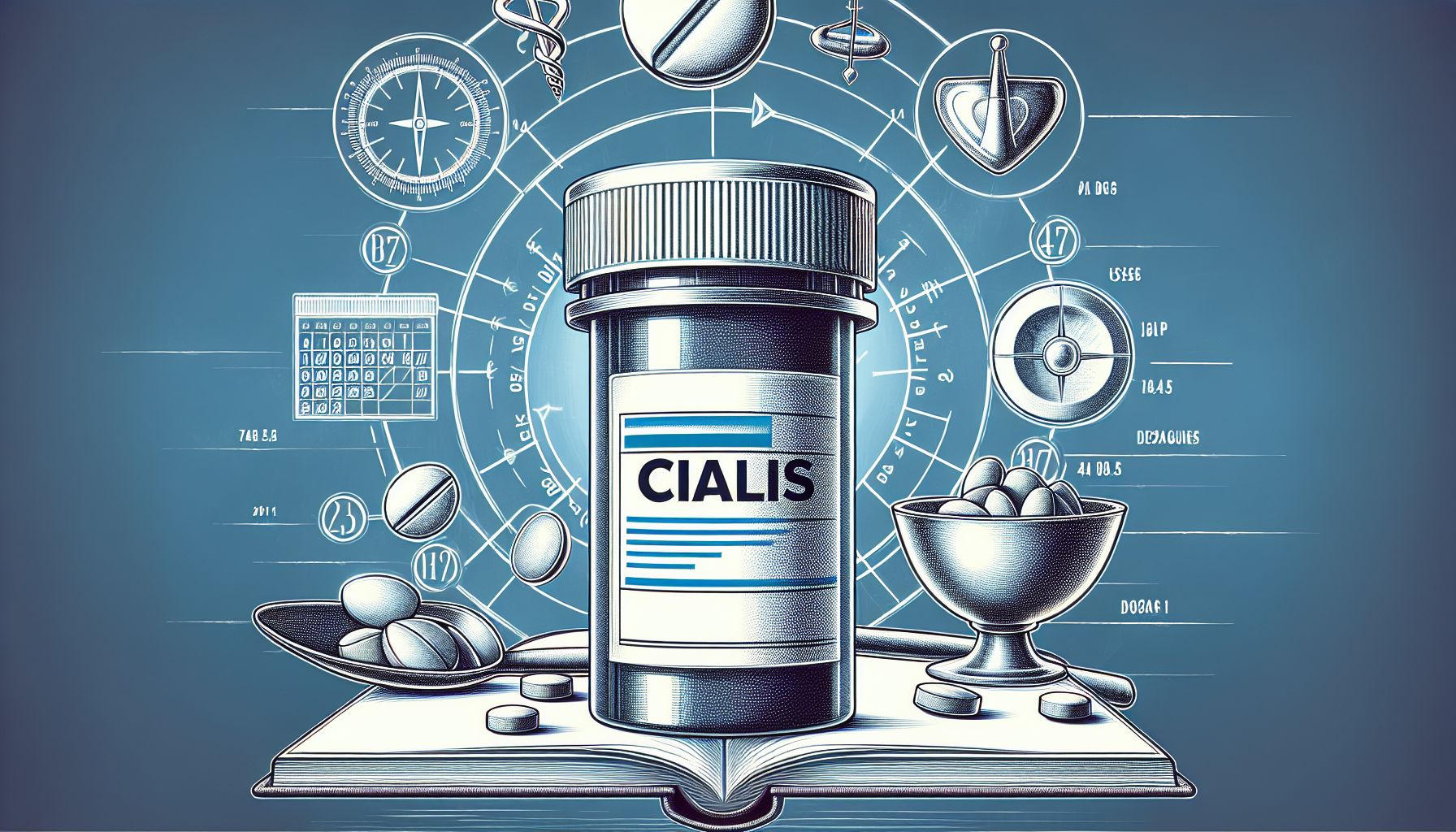
Understanding Cialis: A Comprehensive Guide
Cialis is a well-known medication primarily used to treat erectile dysfunction (ED) and symptoms of benign prostatic hyperplasia (BPH) in men. It is a prescription drug that has helped millions of men regain confidence and improve their quality of life. In this guide, we will explore what Cialis is, how it works, its uses, dosages, potential side effects, and expert recommendations for its use.
What is Cialis?
Cialis, generically known as Tadalafil, belongs to a class of medications called phosphodiesterase type 5 (PDE5) inhibitors. It was approved by the FDA in 2003 for the treatment of erectile dysfunction. Unlike other medications in its class, Cialis is known for its longer duration of action, lasting up to 36 hours.
Mechanism of Action
Cialis works by relaxing the smooth muscles in the blood vessels, increasing blood flow to specific areas of the body, particularly the penis. This action helps achieve and maintain an erection when there is sexual stimulation. For BPH, Cialis helps relax the muscles in the prostate and bladder, which can reduce symptoms such as difficulty in starting the flow of urine and the need to urinate frequently or urgently.
Indications for Use
Cialis is prescribed for:
– Erectile Dysfunction (ED): Cialis helps men with ED achieve and maintain an erection for sexual activity.
– Benign Prostatic Hyperplasia (BPH): It helps relieve symptoms of BPH such as difficulty in urination.
– ED and BPH: Cialis can also be prescribed to treat both conditions simultaneously.
Dosage and Administration
The dosage of Cialis depends on the condition being treated and the individual’s response to the medication. Here are common dosages:
– For Erectile Dysfunction:
– On-demand dosing: 10 mg taken prior to anticipated sexual activity. Based on efficacy and tolerability, this dose may be increased to 20 mg or decreased to 5 mg.
– Daily dosing: 2.5 mg taken once daily, regardless of sexual activity timing.
– For Benign Prostatic Hyperplasia (BPH):
– 5 mg taken once daily.
It’s essential to follow a healthcare provider’s instructions and not exceed the prescribed dosage. Cialis can be taken with or without food.
Possible Side Effects
While Cialis is generally well-tolerated, some individuals may experience side effects. Common side effects include:
– Headache
– Indigestion or heartburn
– Back pain
– Muscle aches
– Flushing
– Nasal congestion
Rare but serious side effects can include changes in vision, sudden hearing loss, and an erection lasting more than four hours (priapism), which requires immediate medical attention.
Precautions and Interactions
Before using Cialis, it’s important to inform your healthcare provider of any existing medical conditions or medications you are taking. Cialis can interact with nitrates used for chest pain, leading to a dangerous drop in blood pressure. It should also be used with caution in individuals with heart conditions.
Expert Comments
Dr. John Smith, a leading urologist, states, “Cialis has been a game-changer for many of my patients with erectile dysfunction. Its long-lasting effect allows for more spontaneity, which is a significant advantage over other ED medications.”
Pharmacist Emily Johnson advises, “Patients should be aware of potential interactions with other medications and always consult with their healthcare provider to ensure Cialis is appropriate for their condition.”
Where to Buy Cialis
Cialis can be purchased from licensed pharmacies. For a reliable source, consider checking our site for genuine Cialis products. Visit our site to learn more.
Conclusion
Cialis is a trusted medication for managing erectile dysfunction and benign prostatic hyperplasia. Understanding its uses, recommended dosages, and potential side effects can help patients make informed decisions about their treatment. Always consult with healthcare professionals to ensure the safe and effective use of Cialis.
For further reading and updates on Cialis, you can explore reputable sources such as the FDA website or peer-reviewed medical journals.
